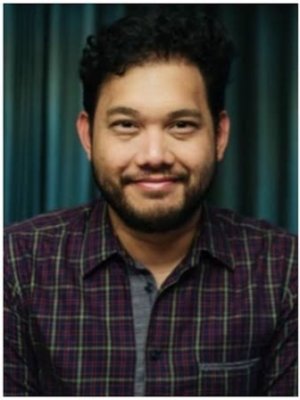

There are so many great music details in it, including Odie saying that Teeth’s ‘Shooting Star’ was the pivotal song for him. “Half of the lines in Rakenrol we can’t even claim we wrote, because they really happened or were said by someone else!” – Quark Henares How did you arrive at certain key decisions, like what kind of band Hapipaks should be, and which real-life bands should be in the tapestry of the script, and so on?ĭiego Castillo: I think was just like how any other upstart band starts, but we did want certain elements, like being in an older band which both Irene and Odie were fans of, so we could have someone navigate not just them but the story as well – seeing how he had some semblance of success with Titik-O, whose song was actually from a real band I was friends with in college called Screwheads. You are both such huge devourers of music. But we’re both feature-film guys, so we really wanted to do a script together.

Quark Henares: You know what? We’ve always wanted to do a docu, and we actually did start shooting it! Of course, eventually, work got in the way. With the social capital and the huge network between you two, did you ever consider doing a straight-up documentary? Or was telling the love story equally important? The film is like historical fiction, to an extent. NME caught up with the creative duo behind Rakenrol to relive the film’s making, as well as clue us in on real-world inspirations behind its lovable oddballs.

It feels so outlandish that it could be made today!” Castillo exclaims. “I’m glad, in a crazy way, that we did it when we did it. It’s where the band Hapipaks, melodically memorable but shoddy at best, can call Ely Buendia a fan where a ridiculous, self-centered maniac like Jacci Rocha (played by Diether Ocampo) enjoys an adoring following where self-styled artistes like video director Flame Tigerblüden (Ramon Bautista) and conceptual artist Yagit (Jun Sabayton) can flourish, no questions asked.ĭiego Castillo and Quark Henares. With fiction and history doing a frantic tango, the film lends the viewer an opportunity for some vicarious roleplay. It may not be the most polished in Henares’ multi-faceted filmography, but what Rakenrol lacked in sheen, it made up for in emotional resonance (and a hearty serving of shits and giggles).
#Quark henares movie#
One title among Castillo’s many recommendations stood out: John Schultz’s Bandwagon, a little-known fictional band movie from 1996, which became – in addition to cultural landmarks like Singles and The Commitments – the blueprint for Rakenrol. He showed me Reservoir Dogs, then Scorsese,” Henares shares. Henares and Castillo are longtime pals, and it was the more senior guitarist, in fact, who turned the filmmaker on to cinema. In celebration of its 10th year, Rakenrol began streaming via Netflix on February 4, providing a time-machine ride to the years of supergroup Cambio, rock bar Mag:Net, and erstwhile gigs like Meiday and Admit One, among other hallmarks of the period. While the film served as influential indie vehicle for its leads – Jason Abalos (who plays lovelorn Odie) and Glaiza de Castro (the starry-eyed Irene) – Rakenrol is largely a love letter to Manila’s vibrant indie music scene in the mid-aughts.

A coming-of-age romance with the cadence of a quirky rockumentary, the 2011 film was helmed by two people with front-row seats to the continuing unfolding of Pinoy rock: writer-director Quark Henares, whose family ran Manila’s most transformative rock-format radio station (the now-defunct NU 107), and screenwriter Diego Castillo, guitarist for Sandwich, one half of DJ-ing duo The Diegos, and all-around scene mainstay. A film like Rakenrol isn’t for everyone – it’s cliquish, insular, and riddled with private jokes – but for the people it meant to speak to, it is irreplaceable.


 0 kommentar(er)
0 kommentar(er)
